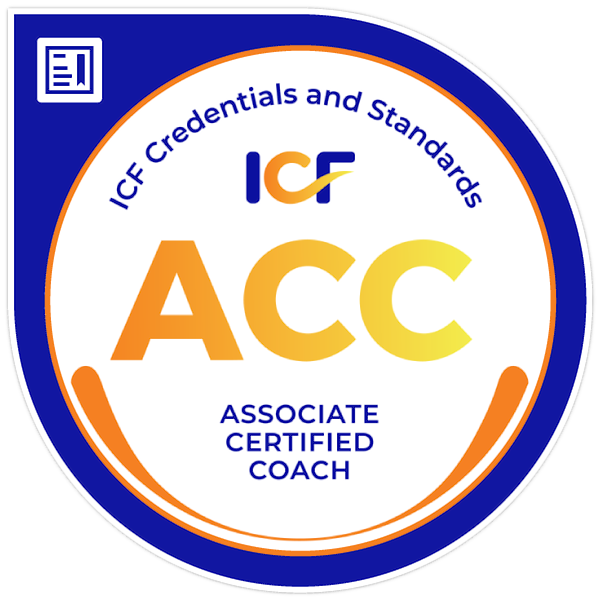We all need people who will give us feedback. BILL GATES The most effective leaders are committed to developing their team members and helping them reach professional goals—and let's be real, helping them to be more successful means you can all go out for fancier team lunches. And the bedrock of developing direct reports? Feedback — effective feedback. Knowing how to effectively deliver feedback not only grows and develops your team, it boosts engagement, team success, and your reputation as a leader. Plus, it reduces the chances of you hiding in the break room to avoid awkward encounters. But how do you deliver effective feedback? Below are eight tips or strategies to use as a springboard to help you deliver more effective feedback. 1) Create a psychologically safe environment and team culture. Dedication to creating psychological safety is a must for effective feedback. Elif Suner, a member of the Forbes Coaches Council, said in a recent article, "This dedication to psychological safety guarantees that direct reports will not only accept feedback, but also embrace it with warmth and openness." By encouraging the sharing of ideas and perspectives without the fear of repercussions and encouraging healthy and productive conflict and discussions, you lay the groundwork for providing feedback in a safe, goal-oriented manner. You can learn more about creating a psychologically safe workplace in this article from the Center for Creative Leadership: What Is Psychological Safety at Work? How Leaders Can Build Psychologically Safe Workplaces. 2) Remember the Magic Ratio. The Magic Ratio was pioneered by Dr. Daniel Gottman, a renowned psychologist with an extensive body of work. He found and others have confirmed that the secret to any stable and flourishing relationship lies within the balance of positive and negative interactions. Think of it as the PB&J of workplace interactions—a little sweetness goes a long way. The findings reveal that in order for a relationship to be stable and healthy, a minimum of five positive interactions are required to offset the impact of a single negative encounter or a ratio of 5:1. Researchers Marcial Losada and Emily Heaphy found that high-performance teams exhibit a positivity-to-negativity ratio or P/N of around 6:1 with a "flourishing zone" they dubbed "The Losada Zone." While most of us 'get' how too much negativity can be bad for team dynamics, they found that we actually need negativity in order to flourish as a team. But not just any negativity, "negativity" in the form of healthy, productive conflict and feedback. And, while we might think that 'always being positive' or having as much positivity as possible is a good thing, the research doesn't pan that out. Too much positivity or even toxic positivity is actually not good for team dynamics either. It's like finding the sweet spot between languishing in prison and the overwhelming exhilaration of bungee jumping off the Zhangjiajie Glass Bridge in China. If you want to learn more about the Magic Ratio and the Losada Zone, I wrote about it here: Enhancing Leadership Success Through the Magic Ratio. Keep in mind that feedback can be positive or critical/corrective. 3) Prepare in advance, if possible. Think of preparing your feedback as rehearsing for the big performance—you want to be ready to rock the feedback stage. While it may not always be possible, taking a few short minutes to prepare will enhance feedback success. Consider including things like your intention or why you're giving the feedback. Jot down a few bullet points so that you don't miss anything (see below). 4) Do it quickly and frequently. Whether you're delivering positive feedback (rewards and recognition) or critical/corrective feedback, the sooner, the better. Giving timely feedback while memories are fresh have a greater impact and allow us to discover more about the behaviors and the circumstances that may have been driving them. Don't wait until next month's one-on-one. You don't want your feedback to be like forgetting to water a plant—don't wait until it's a shriveled mess to give it a drink. Frequent feedback to everyone on your team builds a culture of both reward and recognition, where effective actions and results get rewarded, and accountability. Not holding people accountable damages your credibility as a leader and it is a sure way to drive away, or at the least disengage, your high performers. Think of delivering critical feedback as tending to your garden—you need to pull out the weeds while they're small before they take over. 5) Be specific. Focus on vision, mission, values, goals and behaviors, not the person. Feedback, at its core, is geared to either reinforce or discourage behaviors. We reinforce behaviors that exemplify values and mission and promote and lead to goal achievement. We discourage behaviors that are antithetical to our values or do not lead to goal achievement, like customer service, safety, efficiency, and quality. Think of it as being the director of a play—you're critiquing the performance, not the actor. So, be specific. Name the behavior(s) and the impact they made on others, goals, culture, etc. Differentiate between facts about what happened, your thoughts and the stories in your head about it, how it made you feel, and what you actually want in the future. This is called the Experience Cube. Think of it as building a LEGO set—you need clear instructions to get the final masterpiece. Name-calling and judgements about the person violate our number one strategy above. Plus, nobody likes a workplace with more drama than a daytime soap opera. 6) Approach with curiosity: Ask a question first. This strategy helps you immensely with the previous one. We are all subject to the confirmation bias. When we're asked why we did something
7) Approach feedback with compassion and empathy. A new trend in leadership is integrating coaching techniques into your leadership—part of why you're there is to listen, understand, and help them grow. Empathic listening and compassion are two strong tools to do that and you build psychological safety and strong relationships along the way. They are also great for healthy, productive conflict and feedback. This takes extra energy, focus, and self-awareness. You listen to understand and not to respond or judge. You probe for deeper understanding and reflect back what others are saying to check that you got it right. What you hear may sometimes actually cause you to pivot from your original feedback. Think of this strategy as navigating through a maze—you may need to take a few twists and turns to reach the solution. 8) Invite them to share their questions and any concerns. As you wrap up, think of putting a cherry on top of the feedback sundae—the perfect ending to a constructive conversation. You do that by inviting them to share any questions or concerns. This allows further sharing, clarification, and understanding. Then, go back full circle to your intention and why you gave the feedback and what you expect moving forward. If it's positive feedback, close with the impact on mission, vision, values, and/or goals. And no matter whether it was positive or constructive feedback, always close by thanking them in some way. With these strategies in your toolkit, you're poised to revolutionize the way you deliver feedback. So, buckle up and prepare to embark on a journey of growth, development, and perhaps, a little fun along the way. Have an amazing journey today! Alan Mikolaj is a seasoned coach and leadership development consultant with nearly 20 years of experience. He is passionate about helping leaders transform their leadership, their teams, and their organizations. He has an impactful, professional approach driven by a passion for meaning and purpose, a growth mindset, and a commitment to excellence and service in order to drive change and results. Alan holds his Master of Arts in Clinical Psychology and Associate Certified Coach credential with the International Coaching Federation (ICF) and maintains their ethics and standards of behavior, including the standards regarding confidentiality. You can learn more about them on the ICF website. Transformational change starts with a conversation! Alan is on a mission to partner with like-minded leaders who want to make a positive difference in the world. Schedule your free, one-hour session by clicking here: Discovery Conversation with Alan Or call or email: Contact Page
0 Comments
Leave a Reply. |
Alan Mikolaj
Alan Mikolaj is a a professional, experienced, positive, and passionate speaker, leadership and organizational development consultant, change agent, author, and coach. He holds his Master of Arts degree in Clinical Psychology from Sam Houston State University. He is a certified graduate coach from Coaching Out of the Box and holds his ACC and membership with the International Coaching Federation (ICF). Free Discovery Conversation!
Impactful change starts with a conversation! Schedule your free, one-hour session by clicking here: Discovery Conversation with Alan
Or call or email: Contact Page In his third book, A Travel Guide to Leadership, Alan offers you simple, fundamental, and powerful lessons that have the power to transform you, your relationships, and your career.

Blog Archives
July 2024

Linked2Leadership
Ranked #1 Business Blog! |
|
CONTACT
TEL: 346-291-0216 EMAIL: [email protected] SCHEDULE TIME WITH ALAN Free Discovery Conversation with Alan |










